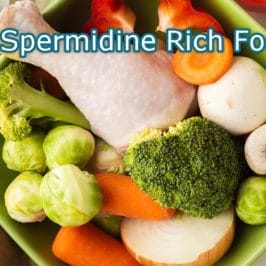It is known that the well-being of a person, his health, appearance are directly affected by natural hormones produced by the body. One of these hormones is somatotropin. It is also called growth hormone (GH), or human growth hormone (HGH). This hormone is an important component of the endocrine system of the body. Throughout a person’s life, from early childhood, HGH supports the proper development, functioning, and well-being of the body. In children, GH acts on the cells of the body, so that tissues, organs, and bones begin to grow.
In addition, somatropin has a positive effect on the appearance of a person. The growth hormone has a rejuvenating effect, removes fat, and builds muscle. It is also responsible for metabolism, physical growth, cognitive abilities, and many functions related to general health. Its action improves the condition of the skin and hair and helps fight aging. The HGH also helps build muscle in bodybuilding.
There are several ways that can help you increase growth hormone levels in your body in a simple, natural way. Here are just a few of them:
Physical activity
Any motor activity is already stimulation the production of growth hormones. However, some types of physical activity especially noticeably improve the synthesis of GH. Such loads include aerobic training. This is brisk walking, running, skiing, etc. That is, for an ordinary person who is not an athlete, a daily run or an hour’s walk at an active pace in the park will be enough to keep his body toned.
For those who want to get rid of fat in the body and build muscle, the approach to stimulating the production of growth hormones should be somewhat different. High-intensity exercises increase HGH the most. In such cases, the combination of power and aerobic loads is considered ideal. For example, exercises with a barbell and dumbbells followed by running on a treadmill. Such combined training should last 45-60 minutes, take place at an active pace, and repeat 3-4 times a week.
Optimize your sleep
Healthy sleep is an important factor in maintaining normal hormone levels.
Growth hormone production requires sleep – but only if you get enough sleep in the first half of the night. Unfortunately, this is not the case for many. For better sleep conditions, bring the room temperature to 18-20 degrees and darken the bedroom – this will help you sink into a deep sleep as soon as possible.
You need to focus on optimizing sleep quality in order to have good sleep for 7-10 hours a day. Therefore, you should accustom yourself to go to bed between 10 and 11 o’clock in the evening, so that by 6-7 o’clock in the morning the body fully rests and develops a sufficient amount of growth hormone.
The HGH production model is based on the body’s internal clock or circadian rhythm. Therefore, most HGH is released while the person is sleeping.
Some hormonal substances are produced at a strictly defined time and in the presence of certain factors, such as darkness, rest, etc. Healthy sleep also reduces stress levels that trigger the release of high doses of certain hormones. Sleep disturbances are often associated with obesity, diabetes, and appetite problems.
Healthy sleep involves darkness. Exposure to light, such as from cell phones or computer screens, and any bright artificial lighting at night affects the production of the hormone melatonin, which negatively affects many bodily functions.
Studies have shown that poor sleep can reduce the amount of HGH produced in the body.
In fact, getting enough deep sleep is one of the best strategies to boost long-term human growth hormone production.
Here are some simple guidelines that will definitely help improve your sleep quality:
- Avoid exposure to blue light before bedtime.
- Sleep only in a darkened room with no extraneous light sources.
- Read an interesting book in the evening.
- Maintain a comfortable temperature in your bedroom.
- Do not consume caffeinated drinks at the end of the day.
Manage stress
Doctors point to a link between stress and hormone levels. Stress leads to an increase in adrenaline and cortisol. If the levels of these hormones are too high, the overall balance is disturbed, leading to factors such as obesity, poor mood, and cardiovascular problems.
To minimize the risk of developing these diseases, it is necessary to learn how to manage stress, because even in the most difficult situations, you can find the most advantageous position. For example, listening to music, reading, doing handicrafts, etc. can reduce anxiety.
Lose weight
The amount of fat in the body is directly related to the production of HGH in it.
People who have higher levels of body fat or more belly fat produce less GH and have an increased risk of developing diseases.
One study compared two groups of people with high and low belly fat and their corresponding growth hormone levels.
It turned out that people who have 3 times more belly fat had less than half the GH compared to the control group that did not have fat in the body.
Interestingly, studies show that excess body fat affects HGH levels more in men.
However, reducing body fat is still beneficial for both men and women.
One study found that obese people had lower levels of IGF-1 (insulin-like growth factor) and GH. But after the successful loss of a significant amount of weight, IGF-1 levels became normal again.
Belly fat is the most dangerous type of stored fat and can cause many diseases. Losing belly fat will help normalize HGH levels and improve other aspects of health.
Proper nutrition
In the diet of a person who seeks to increase growth hormone in the body, protein food should predominate, since it contains amino acids that stimulate the production of growth hormone. But “fast” carbohydrates such as sugar, confectionery products should be excluded from the menu altogether since a sharp increase in the concentration of glucose in the blood inhibits your HGH production. Preference should be given to “slow” carbohydrates – vegetables, fruits, cereals, wholemeal bread, etc.
What you need to eat
Healthy fats. Healthy fats maintain the balance of hormones involved in metabolism and making you feel full. Fatty acids regulate the cells responsible for the body’s response to insulin. Healthy fats from nuts, avocados, and olive oil will also help you balance your insulin levels.
Fiber. Fiber plays an important role in gut health and reduces cholesterol and blood sugar. Certain types of fiber help maintain normal hormone levels, which helps a person maintain a healthy weight.
It is also recommended to eat foods such as cottage cheese, cheese, eggs, chicken, beef, oatmeal, figs, nuts, cabbage, legumes.
Fatty fish. The high levels of healthy fats in some types of fish contribute to heart and digestive health, as well as beneficial to the brain and central nervous system. Eating oily fish can help prevent mood swings, depression, and anxiety.
Green tea. Green tea is a healthy drink that contains antioxidants and compounds that improve metabolism. The substances present in green tea affect estrogen metabolism and reduce the risk of breast cancer, especially in menopausal women. The antioxidants found in green tea can help manage stress.
You need to eat in small portions 5-6 times a day. It is possible to provide the body with amino acids useful for the synthesis of growth hormones using dietary supplements.
In addition, gamma-aminobutyric acid (GABA) or natural HGH supplements have good efficacy in terms of stimulating the production of GH.
Limit alcohol intake
There are many reasons to stop drinking alcohol. Alcohol is known to interfere with healthy sleep. In addition, it disrupts the production of growth hormones when a person is sleeping. Even small doses of alcohol reduce growth hormone synthesis during sleep by 75%.
Do not eat a lot before bedtime
The human body synthesizes growth hormones usually at night.
Given that most foods will cause a boost in insulin levels, some experts suggest avoiding food before bedtime.
High carbohydrate or high protein foods can boost blood insulin levels and potentially block some of the growth hormones synthesized at night.
Nevertheless, these are theoretical assumptions, but there is no direct research on this topic so far.
It is known that insulin levels usually decrease 2–3 hours after a meal. For this reason, nutritionists do not recommend eating foods rich in carbohydrates or proteins 2-3 hours before bedtime.
The decrease in sugar intake
An increase in insulin can lead to a decrease in growth hormone production.
Refined carbohydrates raise insulin and sugar levels. Therefore, reducing sugar intake can help optimize HGH levels.
One study showed that healthy individuals without diabetes had 3-4 times higher levels of growth hormone than patients with diabetes who have impaired sugar tolerance and insulin function.
Excessive sugar intake directly affects insulin levels.
In addition, excess sugar intake is a major factor in weight gain and obesity, which also affects HGH levels.
Reducing sugar intake is a goal to achieve a healthy and balanced diet.
What you eat will have the most serious consequences for your health, hormones, and body composition.
By adhering to the recommendations above, you can naturally raise HGH levels in your body quite easily and safely for your well-being, improved health, and anti-aging.








Leave a Reply